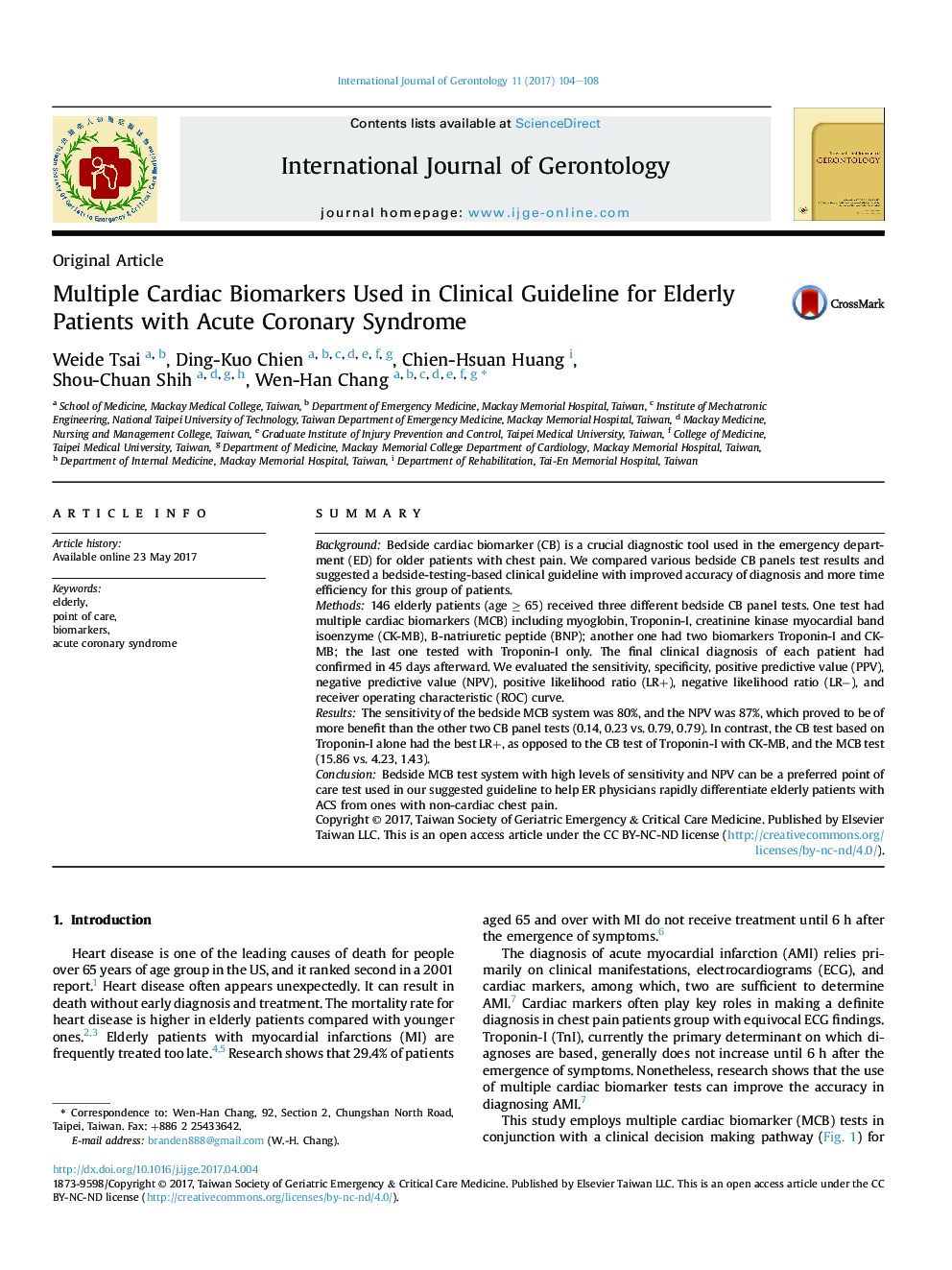| Article ID | Journal | Published Year | Pages | File Type |
|---|---|---|---|---|
| 5662716 | International Journal of Gerontology | 2017 | 5 Pages |
SummaryBackgroundBedside cardiac biomarker (CB) is a crucial diagnostic tool used in the emergency department (ED) for older patients with chest pain. We compared various bedside CB panels test results and suggested a bedside-testing-based clinical guideline with improved accuracy of diagnosis and more time efficiency for this group of patients.Methods146 elderly patients (age â¥Â 65) received three different bedside CB panel tests. One test had multiple cardiac biomarkers (MCB) including myoglobin, Troponin-I, creatinine kinase myocardial band isoenzyme (CK-MB), B-natriuretic peptide (BNP); another one had two biomarkers Troponin-I and CK-MB; the last one tested with Troponin-I only. The final clinical diagnosis of each patient had confirmed in 45 days afterward. We evaluated the sensitivity, specificity, positive predictive value (PPV), negative predictive value (NPV), positive likelihood ratio (LR+), negative likelihood ratio (LRâ), and receiver operating characteristic (ROC) curve.ResultsThe sensitivity of the bedside MCB system was 80%, and the NPV was 87%, which proved to be of more benefit than the other two CB panel tests (0.14, 0.23 vs. 0.79, 0.79). In contrast, the CB test based on Troponin-I alone had the best LR+, as opposed to the CB test of Troponin-I with CK-MB, and the MCB test (15.86 vs. 4.23, 1.43).ConclusionBedside MCB test system with high levels of sensitivity and NPV can be a preferred point of care test used in our suggested guideline to help ER physicians rapidly differentiate elderly patients with ACS from ones with non-cardiac chest pain.
